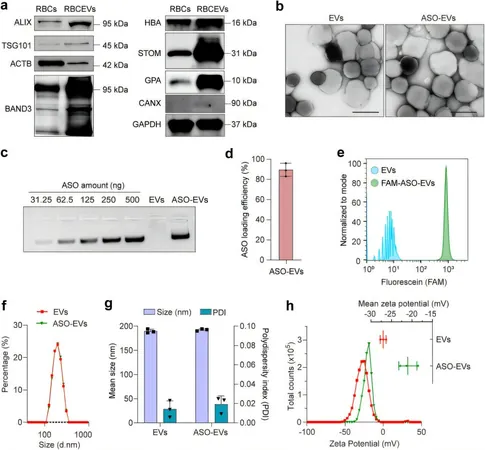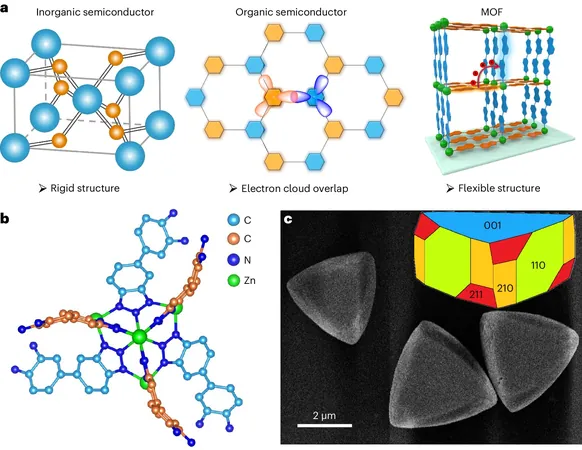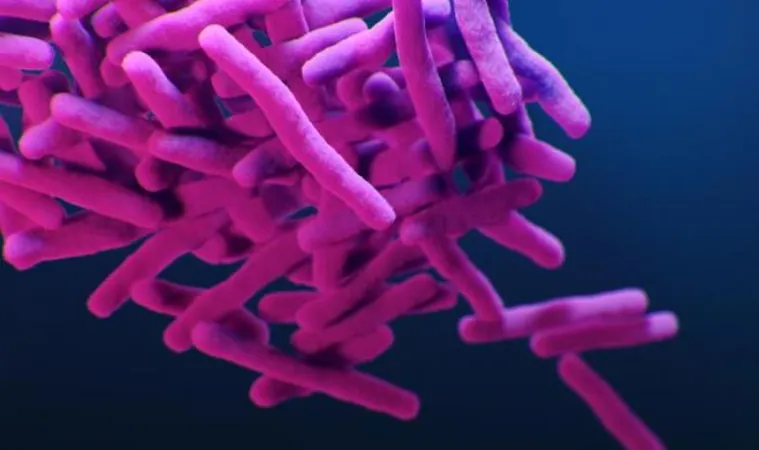
Revolutionary Microcellular Drones Target Lung Cancer: Are We Close to a Cure?
2024-11-11
Author: Nur
Revolutionary Microcellular Drones Target Lung Cancer: Are We Close to a Cure?
In an innovative study by researchers at the National University of Singapore (NUS) Yong Loo Lin School of Medicine, scientists have harnessed the power of extracellular vesicles—tiny nano-sized particles released by cells—to deliver anti-cancer drugs specifically designed to combat lung cancer, particularly the notorious non-small cell lung cancer (NSCLC). This form of cancer has quickly risen as a leading cause of cancer mortalities globally, especially among non-smokers, making the quest for effective treatment more urgent than ever.
Lung cancer notoriously adapts rapidly, evolving drug resistance due to genetic mutations. As a result, the current standard treatments, like tyrosine kinase inhibitors that target mutant epidermal growth factor receptors (EGFR)—prevalent in Asian populations—frequently become ineffective. A team led by Assistant Professor Minh Le is now pioneering a customizable, targeted approach that could change the landscape of lung cancer therapy.
Published in the peer-reviewed journal eBioMedicine, the research outlines how the researchers developed antisense oligonucleotide (ASO) molecules to specifically target and suppress cancer growth in lung tissues. Unlike conventional treatments, ASOs can be tailored to individual patients by targeting unique mutations linked to their specific cancer profile—a crucial advancement considering the high mutation rate observed in NSCLC.
“We are moving away from a one-size-fits-all treatment to a more personalized approach that can adapt to the individual’s unique cancer genetics,” noted Assistant Professor Minh Le. “By using ASOs, we not only combat existing drug resistance but also pave the way for the next generation of precision medicine.”
However, ASOs face significant challenges; they are prone to rapid degradation in the bloodstream. To counteract this, the team ingeniously employed extracellular vesicles derived from human red blood cells as natural carriers, enhancing the stability and targeted delivery of ASOs directly to tumor sites. By engineering EGFR-targeting elements onto these vesicles, the researchers successfully guided the anti-cancer ASOs to the cancerous cells.
The results were encouraging. The ASO-loaded extracellular vesicles demonstrated significant anti-cancer effects across various lung cancer models, effectively silencing mutant EGFR while sparing healthy cells. This selective targeting not only limits damage to normal tissue but also presents a promising avenue for developing therapies that can effectively overcome resistant cancer cells.
Associate Professor Tam Wai Leong from the A*STAR Genome Institute emphasized that this methodology represents a pivotal shift in cancer treatment modalities. “We are stepping into a new era where we can customize cancer therapy on a molecular level. This research not only has implications for lung cancer but could also extend to various malignancies.”
Moreover, this groundbreaking study not only brings hope to NSCLC patients but also solidifies Singapore's position at the forefront of cancer research and biomedicine innovation. The implications for future treatment strategies are vast, and as we await further results from ongoing trials, the potential for a more targeted and effective fight against cancer has never seemed closer.
Stay tuned as we follow this exciting development in the battle against lung cancer, where revolutionary science could soon translate into life-saving therapies!




 Brasil (PT)
Brasil (PT)
 Canada (EN)
Canada (EN)
 Chile (ES)
Chile (ES)
 España (ES)
España (ES)
 France (FR)
France (FR)
 Hong Kong (EN)
Hong Kong (EN)
 Italia (IT)
Italia (IT)
 日本 (JA)
日本 (JA)
 Magyarország (HU)
Magyarország (HU)
 Norge (NO)
Norge (NO)
 Polska (PL)
Polska (PL)
 Schweiz (DE)
Schweiz (DE)
 Singapore (EN)
Singapore (EN)
 Sverige (SV)
Sverige (SV)
 Suomi (FI)
Suomi (FI)
 Türkiye (TR)
Türkiye (TR)